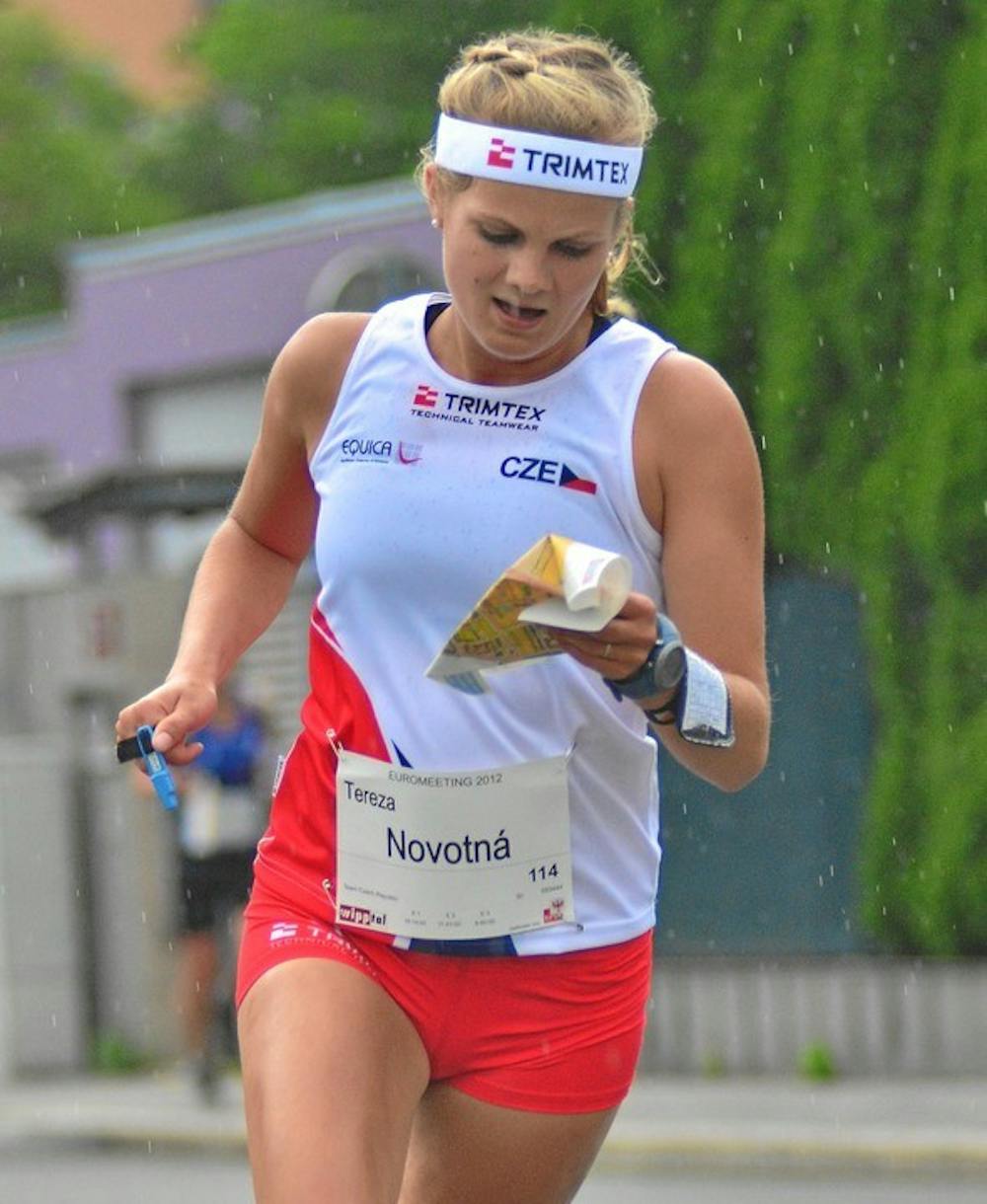It’s not usual for Elon University junior Tereza Novotna to be dropped off in a forest, with only a map and a compass to help her find her way out. Sound scary? It might be for some people, but for Novotna, it’s just another day of orienteering.
Novotna is one of many others around the world who participate in this lesser-known sport. Though it can be intricate and complicated, at its heart it’s a race. Runners are given a compass and a map of the terrain ? typically a forest ? and are left on their own. They must get from point to point in the quickest way possible, as their times are set against their competitors. How they get from one location to the next is up to them.
Novotna, who runs track and cross country at Elon, attributes much of her success in running to the popularity of orienteering in her home country, the Czech Republic. She grew up with the culture of orienteering, which is much bigger in the Czech Republic, as well as Scandinavian countries like Sweden, Norway and Denmark than it is in the United States.
Novotna quickly became a star in the Czech Republic, traveling across Europe to compete in championships at both the continental and world levels. In high school, when she was at the peak of her orienteering, she estimates that she would go to 50 races or so a year.
After finishing second at the Junior World Orienteering Championships in 2009, fourth in 2010 and third in 2011, Novotna participated in the World Games in her first stint as a senior member of the Czech national team.
“It was an amazing experience,” she said. “You get to see how the pro [athletes] live, and it was fun.”
When it came to selecting a college, Novotna made the decision to give up orienteering to go to school in the U.S. After spending her freshman year running track and cross country at Saint Leo University in
Florida, Novotna transferred to Elon. She quickly made her presence known on the track, earning Second Team All-Southern Conference in 2012.
Novotna said that orienteering has certainly helped her in track and cross country, but in orienteering, being a good runner isn’t enough.
“You have to be focused on exactly what you’re doing, and if you start thinking about something else, you get lost,” she said. “It’s so easy to get lost, and you have to practice on how to take the right direction, to find the control point and so on. There are so many aspects.”
Senior Nicole Esplin has experienced this process firsthand. After meeting on the cross country team, Esplin became friends with Novotna and was introduced to the world of orienteering.
“In my experience running [trails] with her, she is fearless, confident and cunning,” Esplin said. “These traits, along with her built-in sense of direction, make her an impressive runner and orienteer.”
Novotna has been to a few races in the U.S., and while she is complimentary of the sport in the U.S., she said it’s nothing compared to Europe. Though traveling all over the country makes it difficult for the sport to fully develop, she said there is good terrain in the U.S., which plays a big part in the success of orienteering.
“If orienteering had someone experienced to market their sport as a test of surviving in the wild, it could work,” Esplin said. “I think maybe the draw of orienteering is they haven’t heard about orienteering before,” which she said could also hurt the brand for those who don’t want orienteering to become too popular.
For now, Novotna is content with running at Elon, though she may want to return to orienteering in the future.
“I would love to be good at it, but right now with the conditions here [at Elon], there are no orienteers around me, so it will be difficult to make progress,” she said.
She still has high goals, but right now, she says she’s a little off-path.


